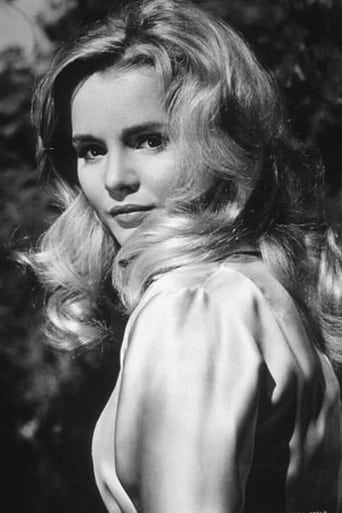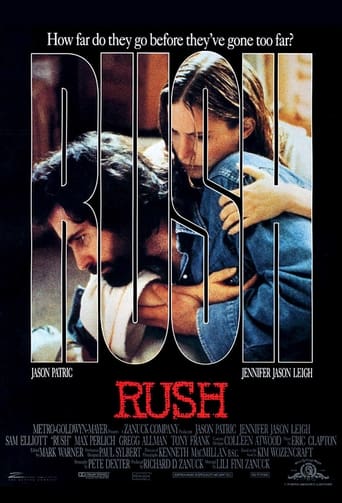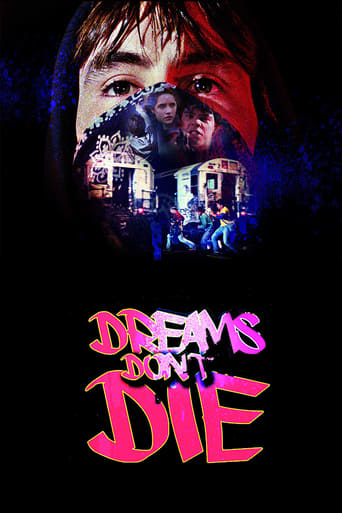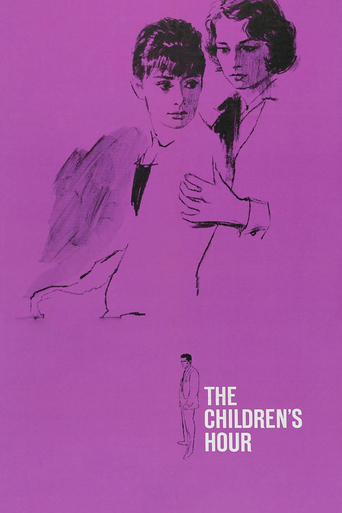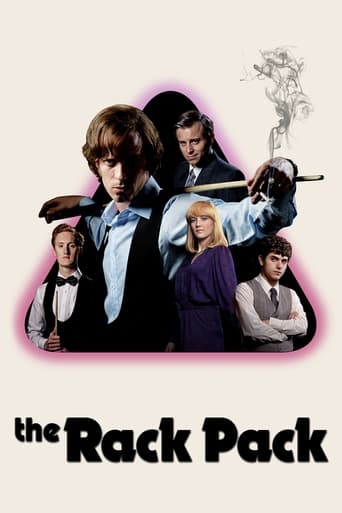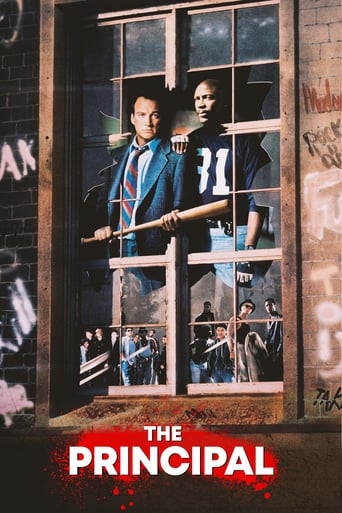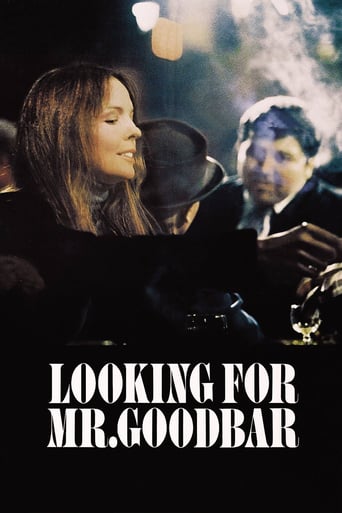
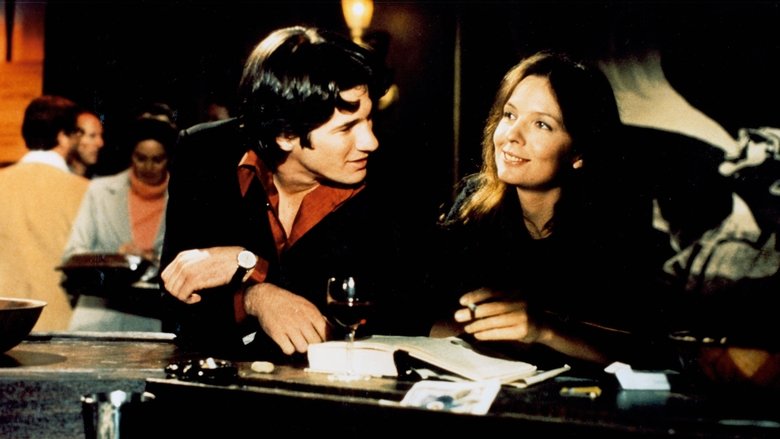
Looking for Mr. Goodbar (1977)
A dedicated schoolteacher spends her nights cruising bars, looking for abusive men with whom she can engage in progressively violent sexual encounters.
Watch Trailer
Cast


Similar titles
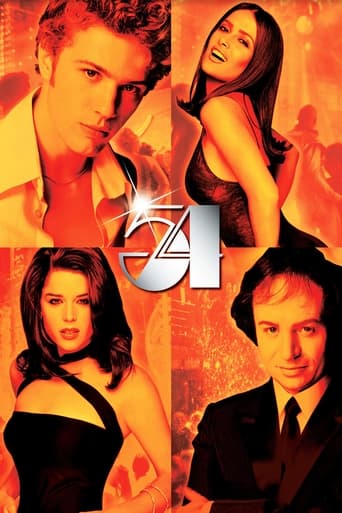
Reviews
On Jan. 2, 1973 a 28-year-old schoolteacher named Roseann Quinn was stabbed to death in her New York City apartment by John Wayne Wilson, a drifter from Indiana she picked up in a bar across the street from her home on W. 72nd Street. Roseann Quinn's brutal murder revealed that she had lived a double life—as a respected, skilled and devoted teacher of deaf-mutes by day and a habitué of Westside bars at night, where she picked up random men for rough sex on a regular basis. Ms. Quinn's strange and lurid story generated reams of titillating newspaper fodder. It also prompted novelist Judith Rossner to write a best selling quasi-fictionalized version of her life and death: 'Looking for Mr. Goodbar' (Simon & Schuster, 1975). Writer-director Richard Brooks ('Lord Jim'; 'In Cold Blood') brings Rossner's book to the screen with somewhat ambiguous results. Diane Keaton's performance as Teresa Dunn (the Roseann Quinn figure) is mesmerizing—far and away, the best of her career—but Richard Brooks' screenplay turns Dunn/Quinn into a daring sexual rebel, druggie, and reckless hedonist when the evidence suggests that the real Roseann Quinn was a desperately lonely and decidedly masochistic personality who sought out abusive sexual encounters in keeping with her own low self-esteem (which stemmed from a repressive Irish Catholic upbringing and a congenital back deformation that left her ashamed of her body). By turning Roseann Quinn into the far more beautiful and charismatic Teresa Dunn, Brooks turns her death into a voyeuristic thriller for male viewers and a cautionary tale for sexually liberated women everywhere: they had better be careful flaunting their sexual assets or they might end up the victims of homicidal male rage. Despite these distortions, 'Looking for Mr. Goodbar' remains an eerily sinister and deeply disturbing film. Rivaling Diane Keaton's performance is that of Tuesday Weld, who plays Teresa's sybaritic but world-weary older sister, Katherine. Indeed Weld was so good she was nominated for a Best Supporting Oscar. 'Looking for Mr. Goodbar' also marks the film debut of Richard Gere as Tony Lo Porto, the John Wayne Wilson figure.
Diane Keaton is a charming and attractive performer, but she is not up to this role. She is visibly uncomfortable in the sleaze/sex scenes and often resorts to mannerisms familiar from her Annie Hall character (watch this film and think of Annie Hall. It's obvious she is not immersed in the Theresa character). On the other hand, Keaton does well in the scenes where she is a teacher, and is quite convincing. Despite the all-around histrionics, she is not bad in the family scenes with sister and father. But this film fails for a few reasons. It has a dark, depressive atmosphere that is not justified by its outcome: poor Theresa is damaged emotionally by her physical 'defects' and by a too-strict Catholic upbringing, this is believable. And it's believable that a person lacking self-confidence would seek out acceptance and affirmation from promiscuous sex (a fairly common scenario, actually). But the film really does seem to say that Theresa deserves her fate in the end. She blows off the one man (Atherton) who would have made sense as a partner and feels compelled to continue a descent into debauchery. Doesn't this film seem to say, keep up with this kind of lifestyle and you'll end up miserable and bitter (like Theresa's sister ) or brutally murdered? This film seems to indulge us in its sleazy world, yet it seems to judge Theresa for immersing herself in it in a vain attempt to ease her pain. Note the way director Richard Brooks chooses to end the film, on Theresa's face as the life blinks out of her--there is no requiem, no final coda expressing pity or remorse. We have been shown the brutal murder of a sympathetic character as if it were a scene from a cheap horror movie. Diane Keaton is not solely to blame for the ultimate failure of the film, the writers and director are more responsible. Still, it's hard not to imagine Keaton and Tuesday Weld exchanging roles: Weld has a much wider range as an actress and certainly would have handled the 'secret life' with more conviction.
I saw "Mr. Goodbar" at a film festival screening, several years after it's initial release. In some ways (none of them good), this movie has haunted me ever since. I can still recall feeling strangely perturbed and confused as the film neared it's final minutes. I guess I expected that the ending would somehow magically bring the preceding grimy and occasionally chaotic events into some sort of focus.All I got from that ending was a brutal stomach ache similar to the lingering pain induced by a cheap sucker punch to the gut. I will readily admit to having gained no further understanding or insight into this film over the years. I still can't imagine why anyone would make a film like this, or what possible value or entertainment viewers derived from it.For me, Diane Keaton's performance is the only thing in the movie that keeps it from getting the lowest vote. That she managed to project some warmth and humanity from such a crudely drawn, relentlessly sad, and gratuitously self-destructive character, only made the ending that much more horrific and senseless. It's easily one of the worst experiences I've ever had in a movie theater.
Probably the biggest problem with this movie other than its insistence that all men are either worthless sexual predators or pathetic, near-impotent panderers is the fact that it has aged so badly. In an age when a small army of women under 30 seem hell-bent on doing all they can to turn their livers and septums to mush in as short a time as possible, Diane Keaton's Theresa Dunn no longer comes across as somebody out of the ordinary.Diane Keaton gives a performance that is by turns both sensitive and irritating as her character revolves around her schizophrenic lifestyle. As a child, Dunn was encased in plaster, a result of scoliosis, and it seems that this is what compels her to take so many risks in her effort to find the kind of freedom she was denied as a kid both by her spell in traction and by a harsh, overbearing Catholic upbringing. She is full of love, as indicated by her relationship with the deaf children she teaches, but gives it in all the wrong ways, leading to encounters with equally warped characters. One of these is Richard Gere in the role that first brought him to Hollywood's attention and which serves as a kind of template for the role of Jesse in Jim McBride's ill-fated remake of Breathless. The other is Tom Berenger, a borderline psychopath tortured by his own homosexuality. Both are characters no right-thinking adult would want to get involved with, but Keaton's self-destructive personality draws her to them, and while you want her to break free from her sleazy night-life a part of you can't help thinking she's going to get what she deserves.The problem with Dunn is that she engages the viewers' sympathy in her straight persona then keeps pushing them away with her self-indulgent excesses and sometimes callous treatment of those who love her most. Combined with the relentlessly depressing atmosphere of impending tragedy that hangs over the entire film, this makes Looking for Mr. Goodbar a difficult film to enjoy (or even watch) and one to which many people wouldn't wish to return.



